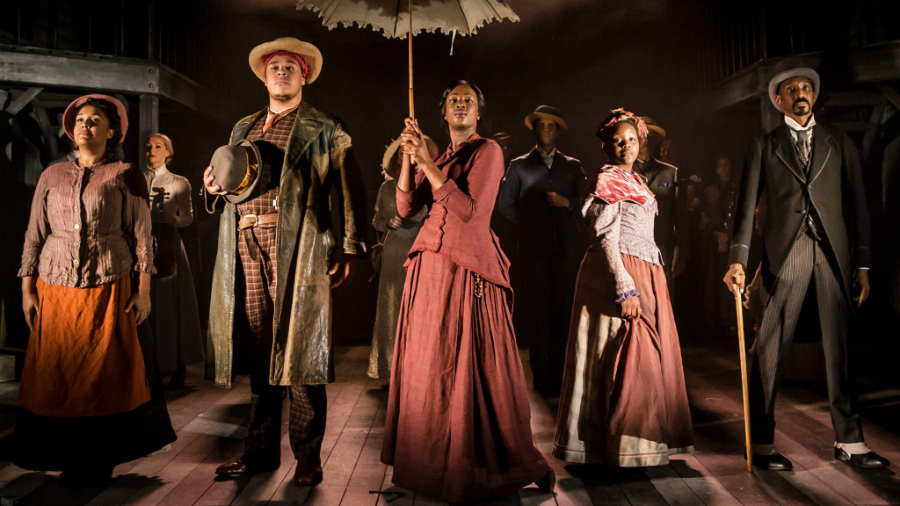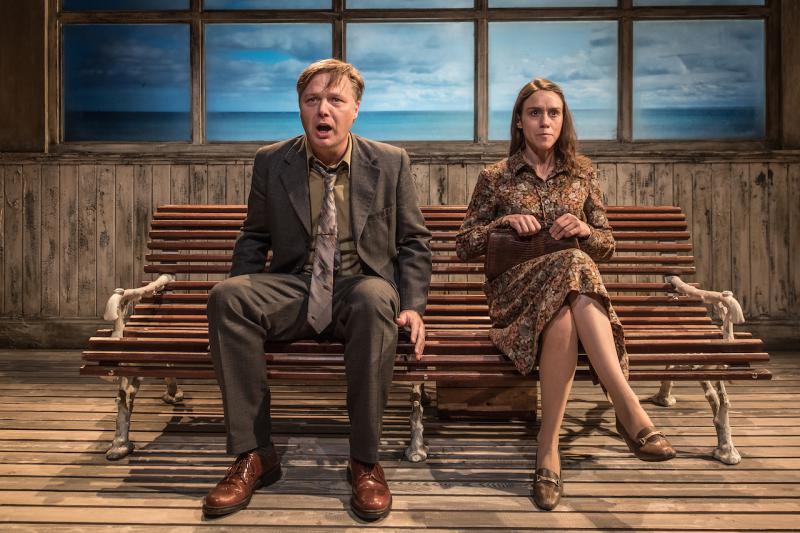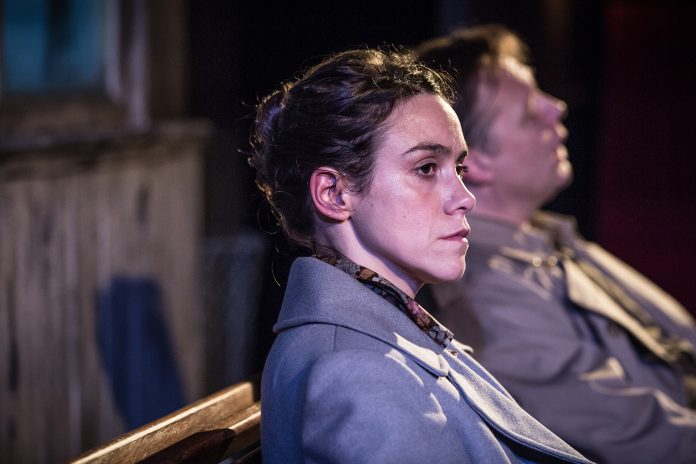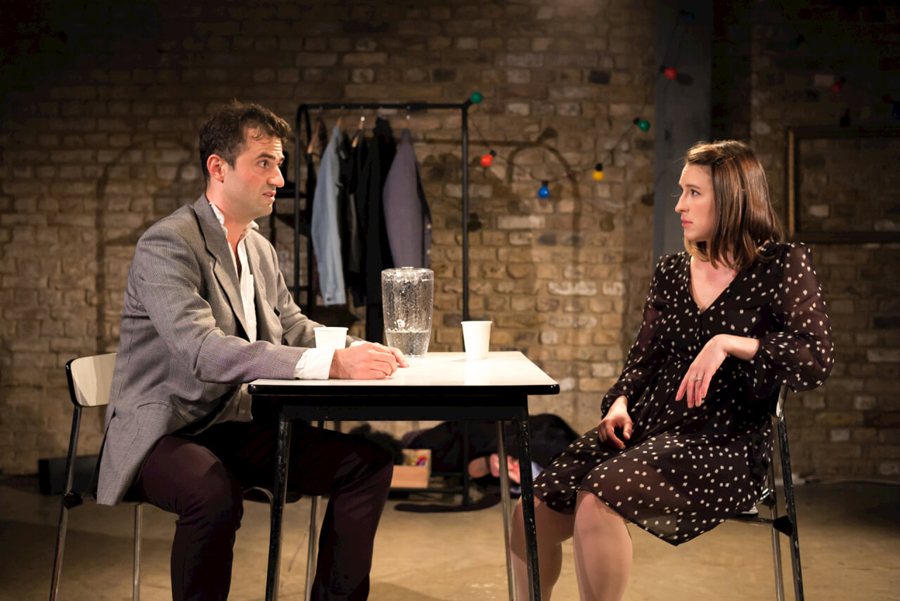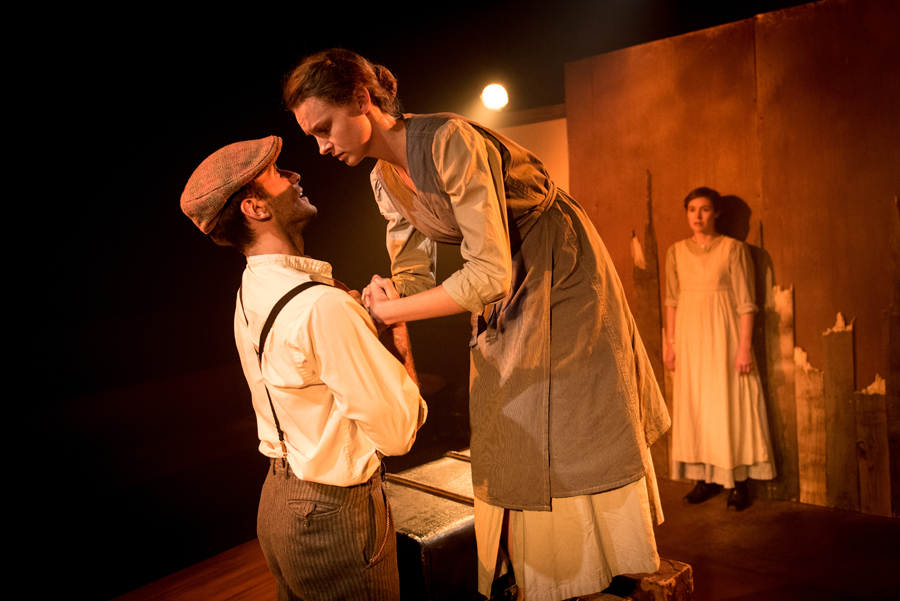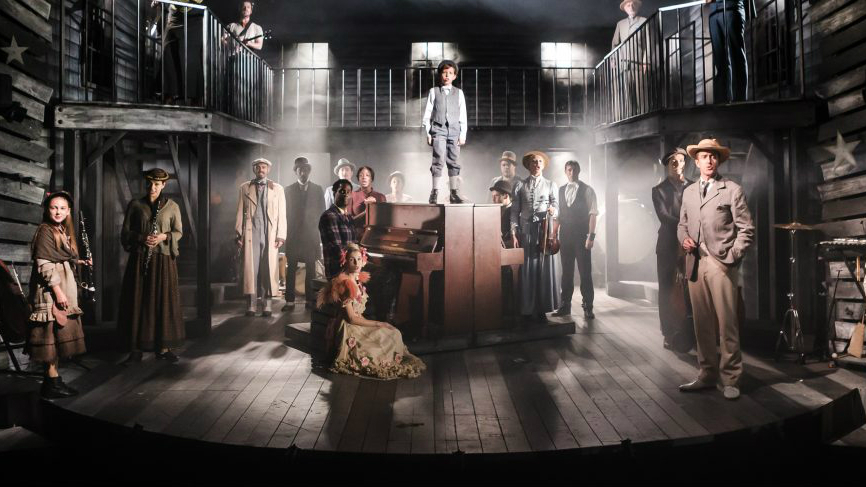 At this time of post-Brexit xenophobia and with refugees in crisis, Ragtime’s dramatic account of the hardships and hatred faced by early 20th-century immigrants to America is all too timely.
At this time of post-Brexit xenophobia and with refugees in crisis, Ragtime’s dramatic account of the hardships and hatred faced by early 20th-century immigrants to America is all too timely.
Terrence McNally’s book works seamlessly with Lynn Ahrens’ lyrics to bring EL Doctorow's 1975 novel to the stage. The story revolves around the interaction of three families: well-established WASPs (white Anglo-Saxon Protestants) Mother, Father and their Little Boy, with Grandfather and Mother's Younger Brother; ragtime piano-playing African American Coalhouse Walker and Sarah, the mother of his baby son; and Tateh (Yiddish for daddy), a young Jewish widower newly-arrived from Latvia with his daughter, as well as his hopes. “A Shtetl iz Amereke,” sings Gary Tushaw’s starry-eyed, sympathetic Tateh.
When Father leaves for a polar expedition, compassionate, resourceful Mother proves she can think for herself, rescuing the new-born abandoned by troubled Sarah, taking her in too and effecting reconciliation between Sarah and Coalhouse. There is an immediate connection when she meets Tateh, in danger of having his aspirations crushed by grinding poverty. But the racial hatred faced by Coalhouse leads to violence that threatens to engulf them all.
Famous personalities of the era play a part, the Jews represented by escapologist Harry Houdini (played by winning Christopher Dickins, his accordion part of his personality) and fiery anarchist activist Emma Goldman (the splendid Valerie Cutko), inspiring and advising alongside civil rights pioneer Booker T Washington (impressive Nolan Frederick channelling Obama). The car Coalhouse buys from Henry Ford (Tom Giles) provokes the hatred and envy that drives the story. And as professional femme fatale Evelyn Nesbit, Joanna Hickman, funny and ravishing, perches on a piano, her cello-playing part of the allure that mesmerises Jonathan Stewart’s likeable, hot-headed Younger Brother.
Thom Southerland’s production fills the Charing Cross’s tiny stage with ‘teeming masses’ - his cast of 24 actors, mostly musicians, dynamically choreographed along with their instruments, by Ewan Jones on a versatile set (designers Tom Rogers and Toots Butcher). Their twin balconies swing across stage to double as ocean liners and twin pianos make vehicles, platforms, and magnificent music thanks to dynamite onstage MD Jordan Li Smith and the nimble fingers of Ako Mitchell’s Coalhouse.
The rhythms of Stephen Flaherty’s score, ranging from the syncopation of ragtime itself to the klezmer brought by Jewish immigrants, wrap the auditorium with powerful sound, thanks to Mark Aspinall’s orchestrations. When the cast sing in chorus it is breathtaking, sometimes overwhelming. There are glorious individual voices. Anita Louise Combe’s Mother has rich warm tones to match her generous personality. Jennifer Saayeng’s Sarah moves to tears with the quiet vehemence of Your Daddy’s Son and soars in a duet with Mitchell’s virile, passionate Coalhouse, and Seyi Omooba’s voice is heart-stopping in this often spellbinding evening.
by Judi Herman
Photos by Annabel Vere and Scott Rylander
Ragtime runs until Saturday 10 December, 7.30pm, 2.30pm & 3pm, £17.50-£29.50, at Charing Cross Theatre, The Arches, Villiers St, WC2N 6NL; 08444 930650. http://charingcrosstheatre.co.uk


